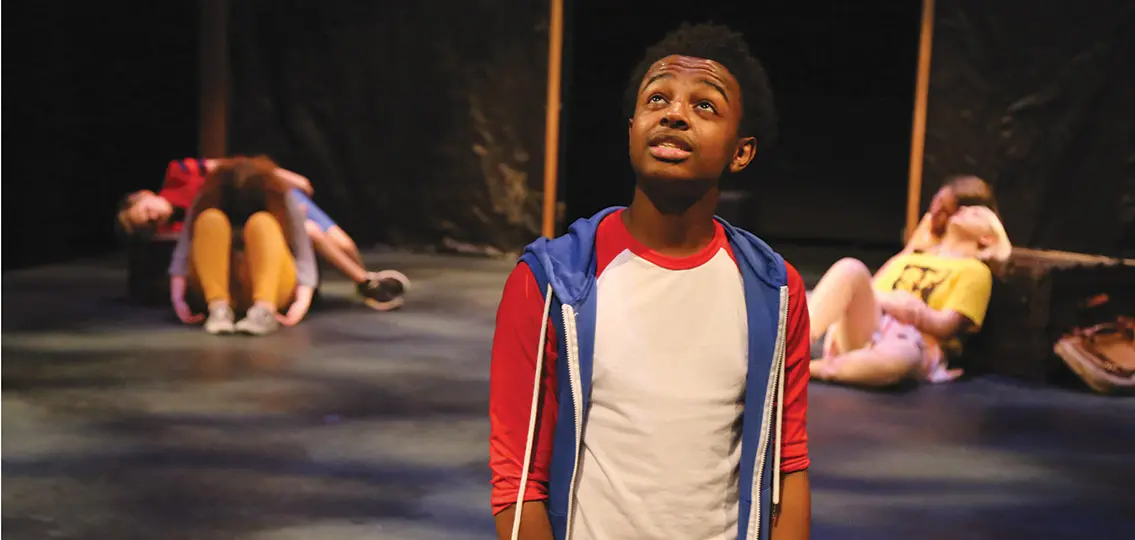When Tommy Bilczo was a preschooler, his mom Jennifer knew he had different interests than his sports-loving older brothers. “When we brought Tommy’s younger brother home from the hospital, Hairspray happened to be on TV,” she recalls. “Tommy asked to watch that movie over and over. He memorized that score like other kids memorize Disney Channel songs.”
She took the hint and enrolled Tommy in community youth theater, and he was hooked. Now age 13, he’s been in several regional stage productions, including roles as Ralphie and Flick in the holiday classic, A Christmas Story, at Cleveland Play House.


Being a theater mom or dad isn’t always easy. “It’s way more unpredictable than the sports parent life, which we are also a part of,” says Bilczo, “but it is rewarding.” Here are some tips Bilczo and Crowley offer if your child wants to get involved in youth theater.
5 Tips for Theater Parents:
1. Take on a supporting role
“Emotional support is the most important thing a parent can provide,” says Jennifer Bilczo. “Not every show is perfect. Not every audition goes well.” Parents provide a safe place to vent frustrations and unwind.
Crowley agrees. He’s not only a theater dad—he’s also the president of Lake Catholic High School in Ohio. This gives him a “behind-the-scenes” view of theater parent dynamics. “The kids in our productions truly appreciate it when someone says, ‘nice job.’ They want to know their efforts are valued.”
2. Encourage practice, practice, practice
If you’ve got kids in sports, you know practice is part of the deal—and the same holds true with theater. “If there is something they need help with, ask the director,” says Crowley. “Get them lessons if needed. A lot of it comes from the repetition.”
For Tommy, this means camps and lessons. “Musical theater is his passion, so he did the Musical Theater Ensemble at Cleveland Play House Theatre Academy,” says Bilczo. “Having the opportunity to practice with others who have the same interests as you is important.”
3. Be flexible
If you’ve got a kid who’s serious about theater, “everyone in the family has to be willing to compromise,” says Bilczo. She recalls one experience where Tommy was involved in a film project with overnight shoots that took place outside in chilly October weather. “A parent always has to be present during filming, so my husband took on the task of sitting alone, in the pitch black, in the woods, surrounded by creepy sounds and weird winds.”
And when one of Tommy’s performances conflicts with his brother’s football game, “sometimes we all have to sacrifice a little bit,” says Bilczo.
4. Appreciate them
“Theater kids have an amazing ability to think on their feet,” Crowley says. “There is nothing like performing live and having somebody forget their line. It’s cool to see how invisible kids make that to the audience.”
They also excel at time management. “Our theater kids can be some of our best students,” he says. “They know how to manage their time and prepare.”
5. Take a bow
Not sure if you’re ready to be a stage parent? Bilczo offers this glowing review: “The people you meet along the way will affect your life in ways you never anticipated, and your extended family continues to grow with every show. It has been worth every late night, hellish tech week, hours of voice lessons, all the driving, running lines, rejections and frustrations, and the frantic search for random costume pieces. So very worth it.”





